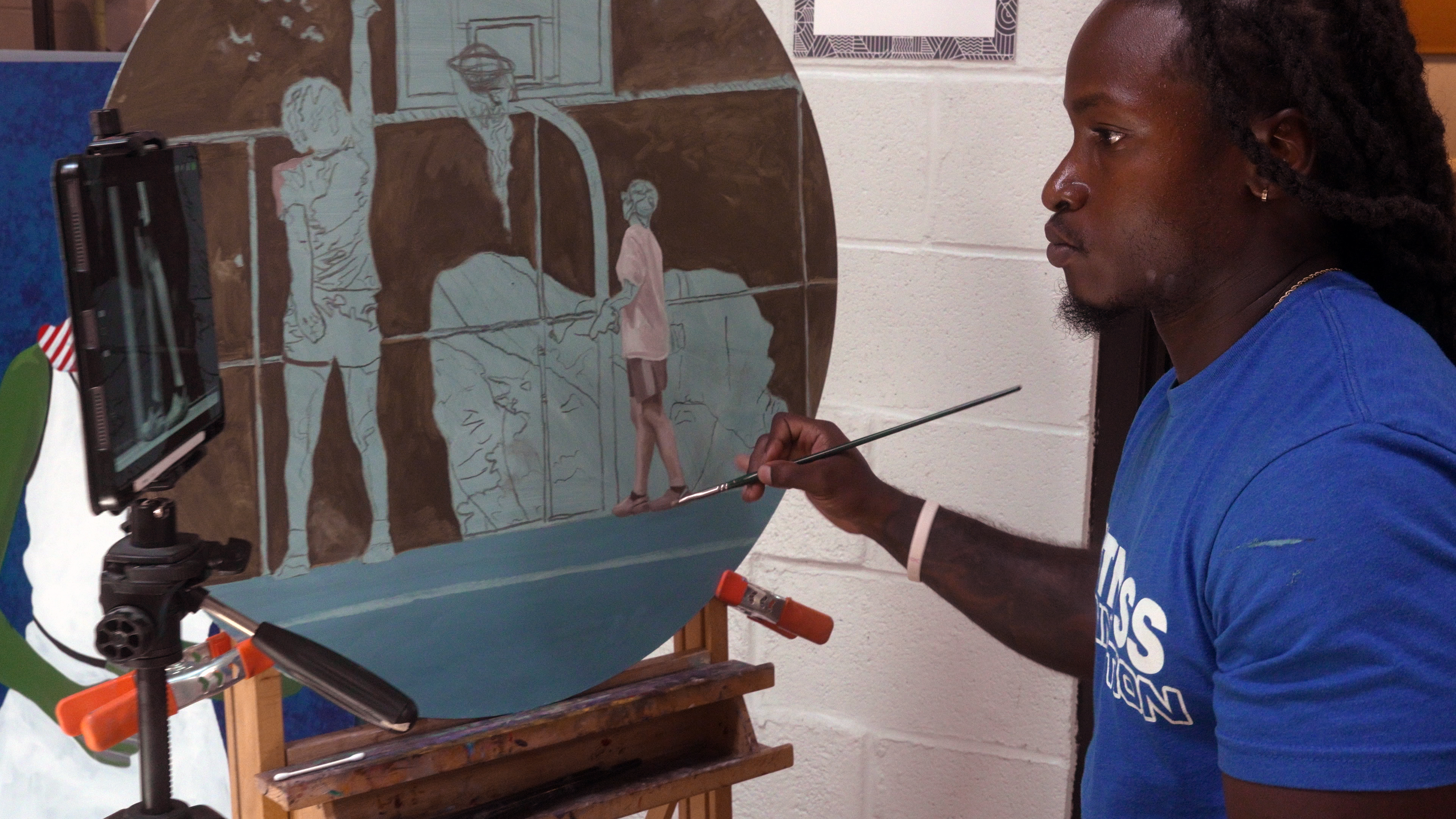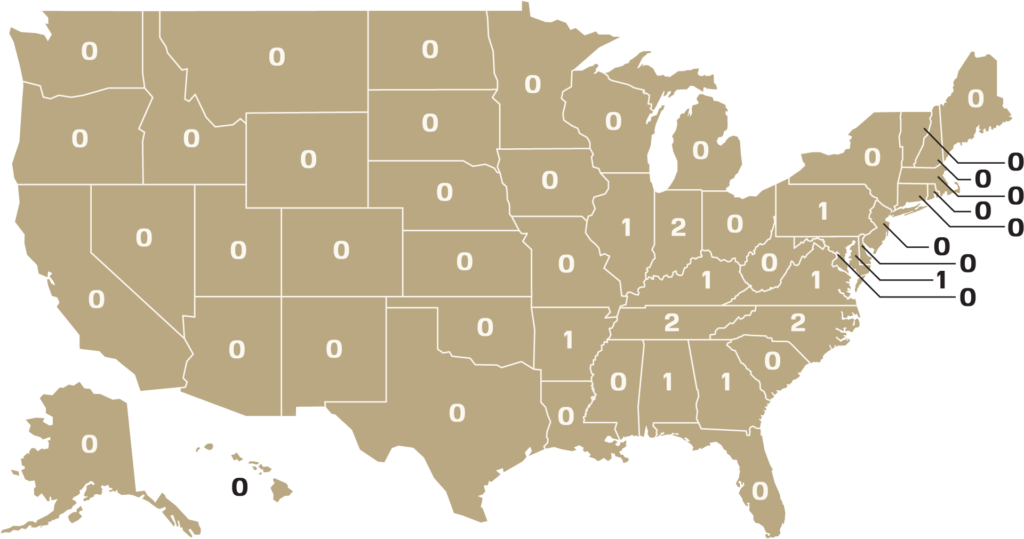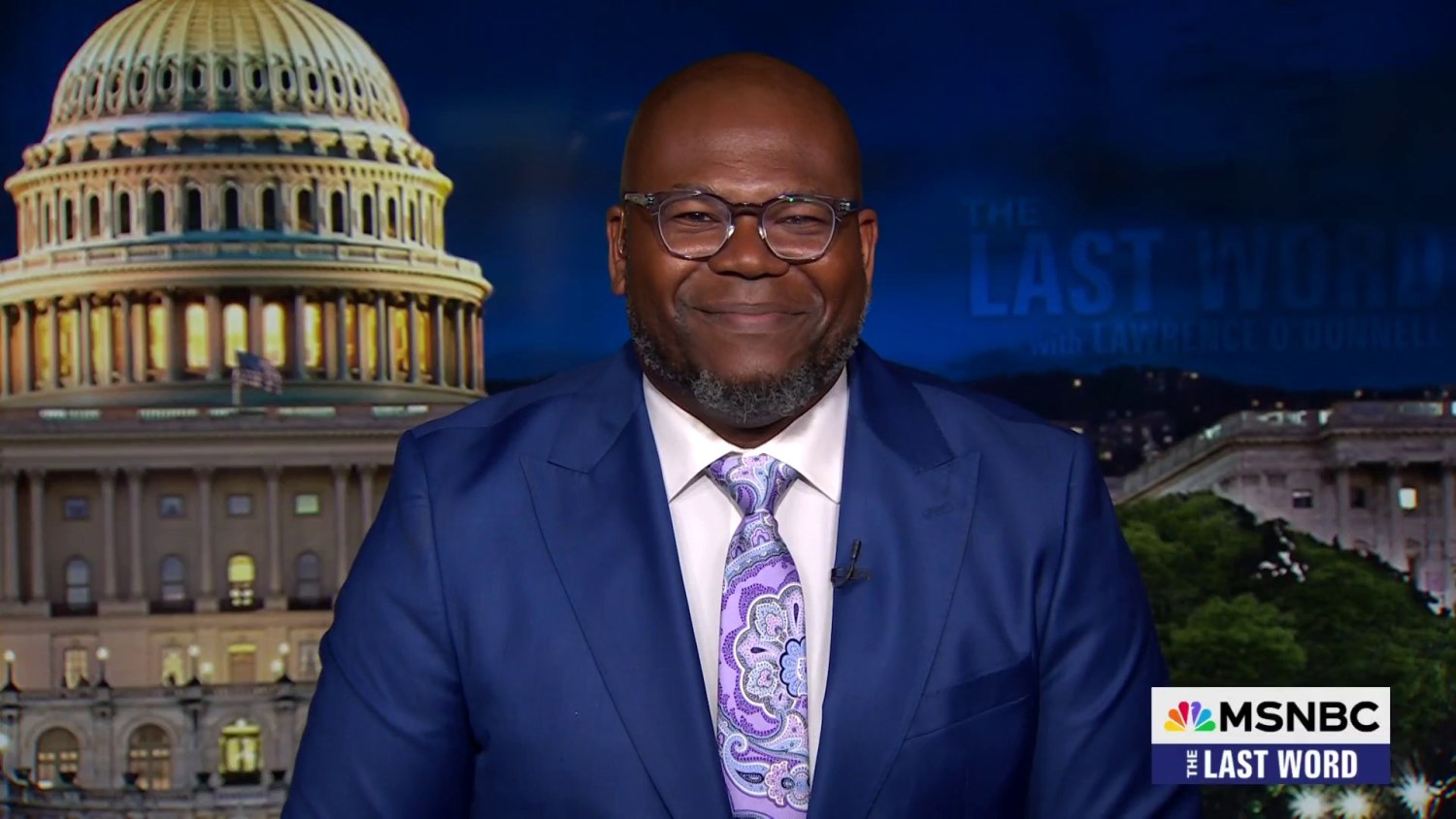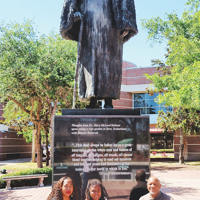- BlackVoter.Org
- Posts
- BlackVoter.Org
BlackVoter.Org


The Chop Shop Artists Collective is set to make a splash with their debut exhibition, “We Are Here,” opening at the Harvey B. Gantt Center on May 23.
This vibrant showcase features 16 Black and brown artists, each bringing unique perspectives on the complexities of the Black experience in America. The exhibit is a celebration of community and collaboration, emphasizing themes like voter rights and cultural identity through diverse art forms.
Highlighted works include Kevin Cole's thoughtful commentary on civil rights and Bryan Wilson’s Afro-kitsch pieces, challenging perceptions of value in art. As the collective aims to express endurance and excellence, members like Roymieco Carter echo the sentiment that growth arises from embracing life’s complexities.
With the exhibition running until October 26, visitors are encouraged to explore and confront the profound narratives present within the Black experience. It’s more than art; it’s a movement of unity and self-affirmation.

In a recent Oval Office meeting with South Africa’s President Cyril Ramaphosa, former President Trump made explosive claims about white farmers facing genocide in South Africa. To support his assertions, he presented images he claimed showed victims being buried.
However, fact-checking revealed that one photo was actually from the violent conflict in eastern Congo, not South Africa. Additionally, Trump showcased various articles and videos that misrepresented the situation, including a montage featuring apartheid-era chants.
This contentious meeting raised eyebrows and highlighted the importance of verifying information, especially when it comes from prominent figures. As misinformation continues to spread, Trump’s assertions serve as a reminder of the critical need for accurate reporting in political discourse.


Vicksburg is stirring up its rich history with exciting renovations at the Kuhn Memorial Civil Rights Park, located on the former site of Kuhn Memorial Hospital. Local leaders aim to transform the space into a vibrant hub for community storytelling and engagement, promoting inclusivity and well-being.
With a $50,000 investment from Shape Up Mississippi, the park will feature a winding trail lined with interpretive signs, a Knowledge Tree sculpture showcasing intergenerational wisdom, and a centerpiece wall made from salvaged bricks of the old hospital. They will pay tribute to Civil Rights leader Myrlie Evers with a sculptural bust, symbolizing courage and justice.
Through initiatives like “Vicksburg Voices,” a series of storytelling events, the project seeks to illuminate untold narratives and foster community connections. This revitalization not only commemorates past struggles but also plants seeds for a healthier, more equitable future as Vicksburg celebrates its 200th anniversary.

In its latest "Year in Hate & Extremism" report, the Southern Poverty Law Center reveals the troubling resurgence of the Ku Klux Klan (KKK) amid evolving ideological landscapes. As older factions like the Old Glory Knights and Loyal White Knights dissolve, new groups like the Maryland White Knights and Sacred White Knights are rising, driven by increased collaboration with other white supremacist organizations.
This restructuring has seen Klan activities seep into mainstream discourse, especially online, leveraging political tensions for visibility. Groups are using social media platforms to recruit and propagate their divisive ideologies, with a focus on anti-immigration and anti-diversity rhetoric.
While Klan membership may appear stagnant, the adaptation and strategy to align with current sociopolitical movements signal an alarming potential for influence in America. As they seek to blend into mainstream conversations, the persistent mythos of Klan identity remains as potent as ever, challenging societal progress against racism and hate.

On Pac-Man's 45th birthday, MSNBC's Jason Johnson draws an intriguing parallel between the iconic video game and U.S.
politics, suggesting that navigating the political landscape doesn't have to feel like an endless maze. Just as Pac-Man deftly maneuvers through obstacles for a greater goal, Johnson argues that political engagement can be about more than just evasion; it can be a proactive journey towards justice and progress.
He emphasizes the importance of moral clarity and strategic action in today’s political climate, encouraging citizens to take inspiration from Pac-Man's perseverance. Instead of becoming trapped in cycles of frustration and confusion, individuals can choose to be informed and activated participants in democracy, transforming the maze into a meaningful adventure.
Johnson's reflections remind us that while the political terrain is complex, it offers the possibility of real change with courage and determination.

The Association of Black Psychologists (ABPsi) is set to hold its 56th Annual International Convention at Bethune-Cookman University from July 30 to August 3, 2025. Themed “Returning to Spirit: The Essence of Who We Be,” this gathering promises a unique exploration of African/Black Psychology, featuring renowned speakers, engaging panels, and community-focused events.
With over 1,400 members, ABPsi has long championed mental health awareness in Black communities, addressing prevalent stigmas and historical distrust of healthcare systems. Highlighting the need for representation, only 4% of therapists are Black, making this convention particularly vital.
Attendees can look forward to insightful discussions and a free Community Day on August 2, where they can interact with researchers and professionals in the field. Dr.
Sharon Bethea, ABPsi's president, emphasizes the importance of breaking the silence around mental health and urges individuals to seek help and utilize community resources.

In a thought-provoking article, the writer highlights how Donald Trump’s political strategy, rooted in fear and intimidation, poses particular dangers to Black Americans. Trump’s mantra—"Real power comes from fear"—shapes his administration's approach, using tactics like voter suppression and public shaming to silence dissent.
The article recalls a personal moment of fear experienced by the author at an airport, prompting a reflection on the pervasive culture of self-censorship that Trump’s regime cultivates. For Black communities, this fear translates into systemic injustices, such as increased voter intimidation and weakened civil rights.
However, the piece emphasizes the importance of resistance—historically and presently—reminding readers that silence is not an option. With a call to action, it encourages Black Americans to stay vocal and vigilant against oppression.
The author ultimately asserts that true power lies in speaking out and refusing to let fear dictate their realities.